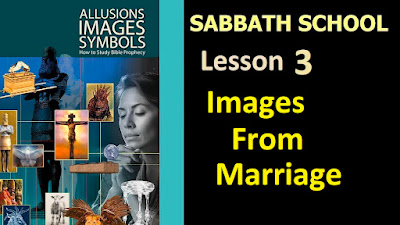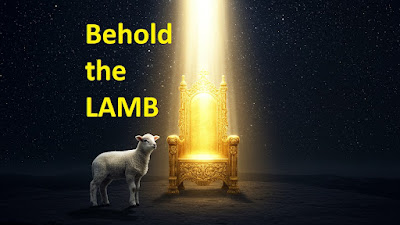"Behold the Lamb"
Text: Genesis 22:7–8; Exodus 12:3–13; Revelation 5:5–10
Throughout Scripture, one symbol emerges with deep and powerful meaning—the lamb. From the thickets of Mount Moriah, to the homes of enslaved Israelites in Egypt, and finally to the throne room of heaven in Revelation, the lamb is not just an animal. It is a promise, a substitute, a Savior.
The Question of the Lamb – Genesis 22:7–8
Isaac asks a piercing question: “Behold the fire and the wood, but where is the lamb for a burnt offering?” This is not just the curiosity of a child; it is a theological echo that would resound throughout history. Abraham responds in faith: “God will provide for Himself the lamb.”
Here, on Mount Moriah, we begin to see the first glimpse of substitution. Isaac, the beloved son, is spared. A ram is caught in the thicket—provided by God. This moment is more than a test of faith; it’s a prophetic shadow of a greater sacrifice to come.
The Blood of the Lamb – Exodus 12:3–13
Fast forward to Egypt. God commands each household to choose a lamb, spotless and innocent. Its blood is to be painted on the doorposts. Why? “When I see the blood, I will pass over you.” The lamb dies so the firstborn may live.
Here, we see the lamb as deliverer. The lamb is not only a substitute but a shield from judgment. Its blood marks a people for salvation. Again, God provides a lamb—and again, death passes over.
The Worthy Lamb – Revelation 5:5–10
Now we step into eternity’s throne room. John weeps because no one is found worthy to open the scroll—until he is told, “Behold, the Lion of the tribe of Judah has conquered.” But when John looks, what does he see? “A Lamb standing, as though it had been slain.”
The Lion is the Lamb.
He is worthy not by force, but by sacrifice. The Lamb of God, Jesus Christ, takes center stage in heaven because He bore the judgment, carried the cross, and rose in victory. His blood, John hears, “ransomed people for God from every tribe and language and people and nation.”
The Lamb for Us
From Isaac’s near-sacrifice, to the Passover lamb, to the Lamb slain before the foundation of the world, Scripture tells one unified story. The lamb is more than a symbol—it is the Savior Himself.
Abraham was right: God did provide the Lamb.
And today, we don’t wonder where the lamb is. We know. He is on the throne, and He is worthy.
“Worthy is the Lamb who was slain, to receive power and wealth and wisdom and might and honor and glory and blessing!” (Revelation 5:12) Amen.
More: Lesson 2 - The Genesis Foundation






